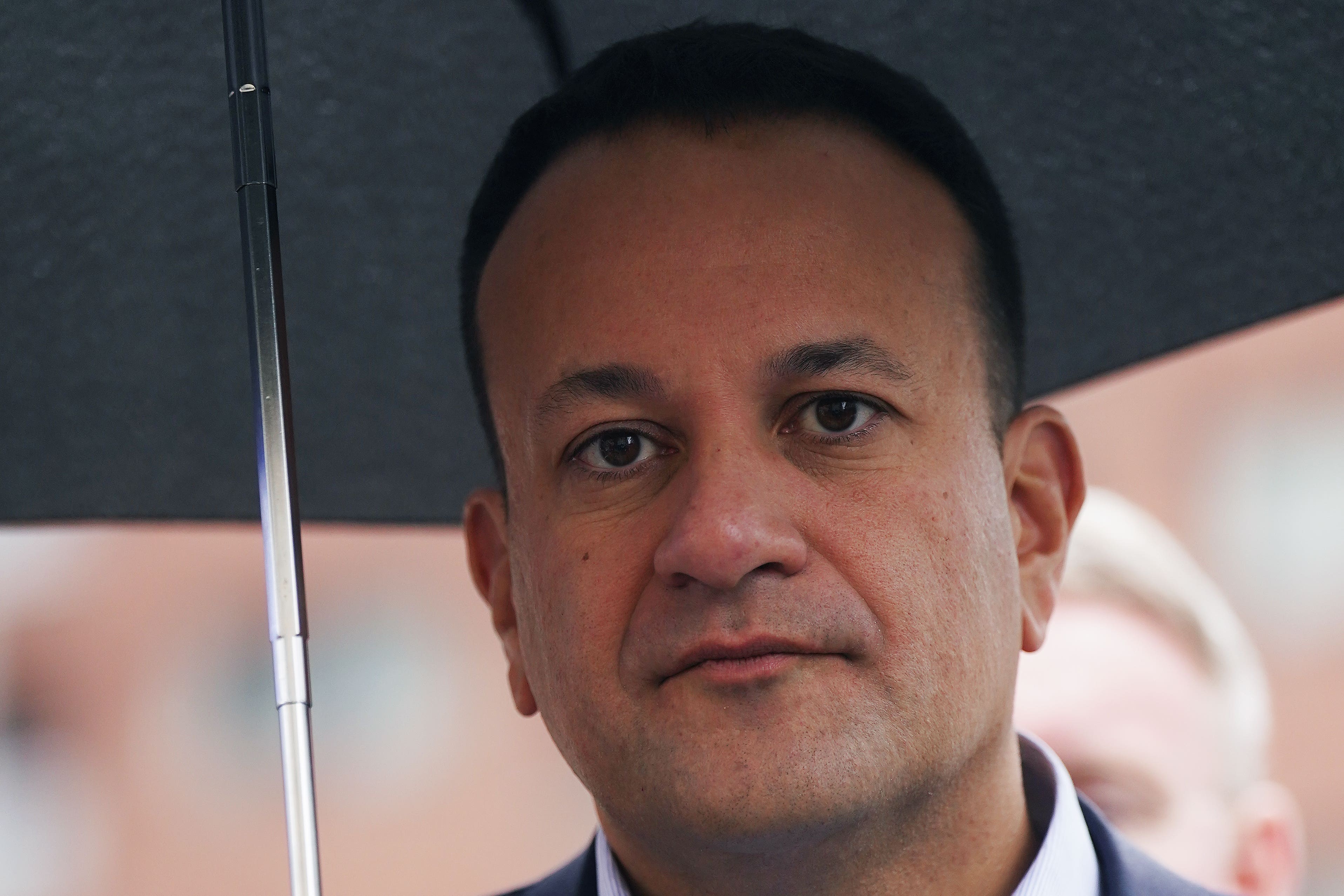Varadkar cautions against supermajority in any future Irish unity vote
The Taoiseach said there is not enough talk to convince people in Northern Ireland “that a united Ireland would be a warm home for them”.

Your support helps us to tell the story
From reproductive rights to climate change to Big Tech, The Independent is on the ground when the story is developing. Whether it's investigating the financials of Elon Musk's pro-Trump PAC or producing our latest documentary, 'The A Word', which shines a light on the American women fighting for reproductive rights, we know how important it is to parse out the facts from the messaging.
At such a critical moment in US history, we need reporters on the ground. Your donation allows us to keep sending journalists to speak to both sides of the story.
The Independent is trusted by Americans across the entire political spectrum. And unlike many other quality news outlets, we choose not to lock Americans out of our reporting and analysis with paywalls. We believe quality journalism should be available to everyone, paid for by those who can afford it.
Your support makes all the difference.Irish premier Leo Varadkar has said that a UK government minister is “absolutely entitled to express his opinions” after suggesting that a super majority should be needed in a poll on Irish unity.
Northern Ireland Office minister Steve Baker told the British-Irish Parliamentary Assembly (BIPA) that the Brexit referendum “probably should have been a supermajority” of at least 60%.
He then cautioned against a “50% plus one” result in any potential Irish unification vote.
The UK Government has since clarified that this does not represent a change on its position towards an Irish unity referendum.
Mr Varadkar said although a “50 plus one” majority wouldn’t be desirable, he questioned what would happen if there was a “consistent” majority in favour of change.
Mr Varadkar, who has said previously that he believed there would be a referendum on Irish unity within his lifetime, also said it shouldn’t be held any time soon.
Mr Varadkar said it would be a divisive process, and said there is not enough talk about convincing British people in Northern Ireland “that a united Ireland would be a warm home for them”.
Speaking in Brussels on Friday, the Taoiseach said: “I know on occasions people have even questioned my right to have an opinion. I do have an opinion on these things, Steve Baker does too.
“I totally respect that and would offer no criticism of the fact that he’s thinking about these things and expressing views.
“I understand the argument in favour of a supermajority. You know, 50% plus one would not be the most desirable outcome, we would much rather see a convincing majority for unification if and when a border poll comes.
“I don’t think the time is right for that. I think it’s quite distant, in fact, for reasons I’ve explained in the past.
“I suppose the difficulty with a supermajority is how long could you keep the status quo in place, if consistently, a majority of people didn’t want that status quo?”
Mr Varadkar said that “a huge amount of work” is needed ahead of a referendum on Irish unity.
“The reason why I don’t think it’s a good idea at the moment is the indications are that it would be defeated, and it would also be divisive,” the Fine Gael leader said.
“And that’s why the focus has to be on getting the Good Friday Agreement working again, and institutions up and running.
“We see all around the world what happens when important referendums fall. I remember the referendum on an Australian republic 25 years ago, pretty far away, was defeated; independence in Quebec, for example… in Scotland.
“I think having a referendum on such an important matter that you may not win is fraught with risk: defeat, division.
“And if we’re going to win a referendum on that matter, a huge amount of work has to be done to convince the British people in Northern Ireland, those who have a unionist/loyalist/Protestant/British identity, that they’re welcome, that they’re wanted, that a united Ireland would be a warm home for them, and there’s not enough talk about that, quite frankly.”